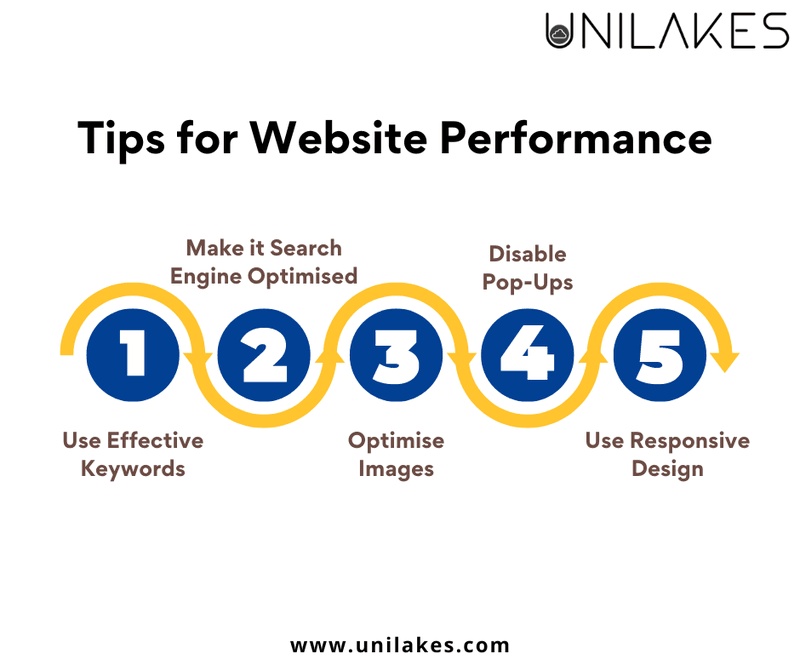
Digital marketing is a powerful tool that can help your site rank higher in search engine results pages (SERPs) and attract more traffic. But if you don't have a solid digital marketing strategy in place, your site will struggle to reach its full potential. That's where our team comes in! We'll help you create an effective digital marketing plan that will boost your website speed and visibility, drive more traffic from organic search, and increase the reach of your content.
How to Increase Site Performance.
To increase site performance, businesses must first understand their needs and then develop a strategy to meet those needs. This can be challenging as different companies have different goals and requirements for website performance. However, there are some general tips that can help improve website performance.
1. Use effective keywords in your site’s content: Keywords are important because they help businesses find potential customers on the web. When you use keywords in your content, you will increase your chances of being found by search engines and resulting in higher traffic to your site.
2. Optimise images: Image optimisation is another important step in improving site performance. By using high-quality images on your site, you will help prevent visitors from clicking on broken links or taking too long to load pages. Using a cache plugin can do you good but consider the rating and number of downloads for the plugin first so that you might not run into some malicious plugin.
3. Use the white text on dark backgrounds: White text on dark backgrounds helps users see your site more easily while reducing distractions caused by other websites on the screen. This also helps improve the readability of pages and makes it easier for users to navigate our sites.
4. Use responsive design: When designing your site, use responsive design. This means that your site will automatically adapt to the size of your browser window or device. This will improve website performance as well as make it easier for you to change the layout and look of your pages without having to make any changes to your code.

How to Increase Site Performance with Strategies.
One of the most critical factors in website performance is speed. If your site can’t load quickly, you’ll lose out on potential customers and lose the chance to convert more leads into sales. To improve your website speed, follow these tips:
(1) Optimise images and videos for faster loading times.
(2) Optimise your page for search engines by using a well-optimised title, metadata, and anchor text.
(3) Disable pop-ups and other intrusive features on your website so that users can access content without being bombarded with ads or promotional content.
Increase Your Site Load Time.
Another key factor in website performance is load time. To increase load time, follow these tips:
(1) Use multiple caching techniques to reduce the amount of time your pages take to load from start to finish.
(2)Disable JavaScript and other scripts that slow down your site.
(3)Use mobile-friendly design principles when developing websites for mobile devices.
(4) Place images, videos, and other large files in a different location on your web server so they load faster when visitors visit them from their devices.
Improve Your Site Navigation.
In order to ensure that readers can easily find what they’re looking for on your site, improve your website navigation by using well-optimised title tags, metadata, and anchor text. You can also use search engine optimisation techniques to help you rank higher in search results.
Create More Engaging Content.
When it comes to creating engaging content, you need to be sure that your website’s content is high quality and relevant to your target audience. To achieve this goal, follow these tips:
(1)Create original content that’s interesting and useful to your target audience.
(2)Find new ways to market and promote your site’s content so that it reaches a wider audience.
(3) Use social media platforms like Facebook, Twitter, and LinkedIn to share information about your site with more people than ever before.
(4) Use keywords and phrases in your site’s content that are likely to be searched for by users on the web.
Tips for Increasing Site Performance.
One of the most important things you can do to improve site performance is to optimise your website for search engine optimisation (SEO). This means making sure your site is easy to find and discover, as well as ranking high on search engines. To do this, you’ll need to make use of several tools and techniques, including keyword research and web analytics.
Conclusion
Improving site performance is essential for any business. By following a few simple strategies, you can increase your website's speed, load time, and conversion rates. Additionally, by creating engaging content and optimising your website for SEO, you can tap into more potential customers. Finally, by using digital marketing techniques to increase site performance, you can reach a larger audience and boost sales.
Learn more about the must-haves of a quality website.
Looking for a Personalized Website
Your website is the face of your company. It is important to have a professional-looking design and an organized, user-friendly layout for all the content that you put on it. The easiest way to do this is to ask for a professional service to do that for you. They can create a design that is both functional and visually appealing.
At Unilakes, we keep the customer's requirements a top priority and utilize our best to give them a great-looking website. With our team, you get a conversion-focused website for your business.
Written by
Rabeea Hammad
Customer Success Manager
Unilakes Technologies

